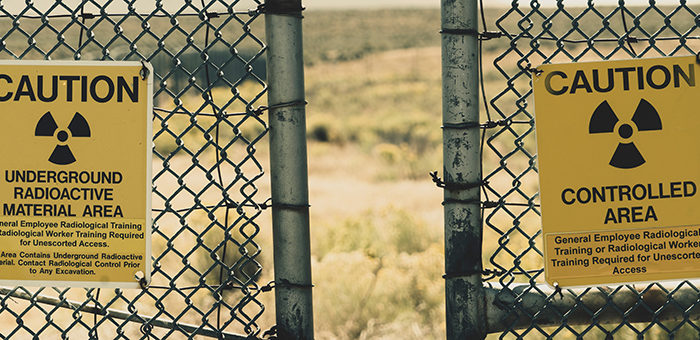The 75th anniversaries of the atomic bombings of Hiroshima and Nagasaki remind us of the urgent need to eliminate the threat of nuclear weapons. The utter devastation and deadly radiological toll on human lives testify to the impacts of nuclear weapons.
In 2011, the National Association of Evangelicals pledged support for “national leaders who adopt policies and pursue negotiations that will contribute to peace, freedom and security at home and abroad, giving particular attention to the threats posed by nuclear weapons.”
Life is a gift from God that we must not threaten with weapons that by their nature indiscriminately kill innocent people and cause overwhelming harm disproportionate to the good we aim to achieve. Science and history demonstrate that the use of nuclear weapons would have devastating human, environmental and economic consequences — potentially affecting everyone on the planet.
Many of today’s nuclear weapons are much more powerful than the two that leveled Hiroshima and Nagasaki. Too many of these weapons are on immediate alert status. A miscalculation or error among any of the nine nuclear-armed states could lead to nuclear catastrophe.
The development and maintenance of nuclear weapons diverts resources from critical human needs. Our nation plans to spend $1.5 trillion on nuclear weapons over the next three decades and is now considering new nuclear tests, breaking a decades-long moratorium and potentially sparking a new arms race. The coronavirus pandemic is a stark reminder of other pressing threats to human security that need our attention. As the cancer rates among downwinders tragically demonstrate, the production and testing of nuclear weapons have led to severe illness and premature death for so many.
The United States and Russia possess 90 percent of the world’s nuclear weapons. Our two nations, together with other nuclear powers, must provide global leadership to eliminate the nuclear threat and pursue verifiable global nuclear disarmament. Mutual, verifiable nuclear disarmament is a smart national security policy that has enjoyed bipartisan support. In 1984, President Reagan argued, “A nuclear war cannot be won and must never be fought.” In 1985, he sought “the elimination one day of nuclear weapons.”
In this election year, voters must insist that candidates commit to reducing and eventually eliminating the nuclear threat, including:
- Taking nuclear weapons off immediate alert status to diminish the consequences of miscalculation or error;
- Declaring that our nation will not be the first to use nuclear weapons, to reduce the possibility of nuclear escalation;
- Extending the New START Treaty to restrain the nuclear arsenals of the United States and Russia, allow continued inspections, and avoid a renewed arms race;
- Reducing funds for nuclear weapons and investing instead in human health, security and welfare, especially in light of the coronavirus pandemic and economic meltdown; and
- Fulfilling our treaty obligations by strengthening the Nuclear Non-Proliferation Treaty to prevent the spread of nuclear weapons and advancing multilateral negotiations to reduce and eliminate nuclear weapons.
The moral imperative is clear. On this somber anniversary we pray for wisdom and courage for all of our leaders, and pledge them our support as they work to reduce and eventually eliminate the nuclear threat to life itself.
Galen Carey, NAE vice president of government relations, is responsible for representing the NAE before Congress, the White House and the courts. He works to advance the approach and principles of the NAE document, “For the Health of the Nation.” He is also co-author with Leith Anderson of “Faith in the Voting Booth.” Before joining the NAE staff, Carey was a longtime employee of World Relief, the relief and development arm of the NAE, serving in Croatia, Mozambique, Kenya, Indonesia and Burundi. He received an M.Div. from Trinity Evangelical Divinity School, and a Doctor of Ministry from McCormick Theological Seminary.




 View All Articles
View All Articles 





